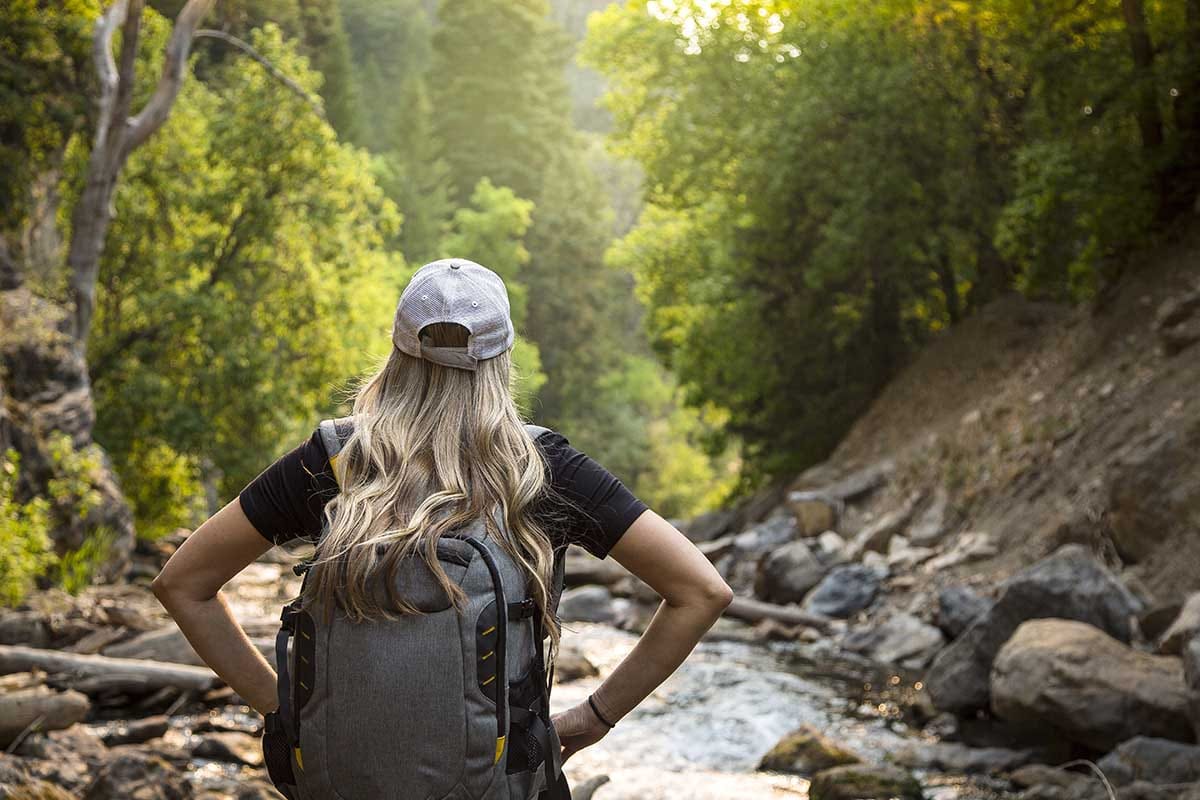Wilderness therapy, also called adventure therapy, combines nature and survival experiences with rehabilitation therapy to treat mental health disorders and substance use disorders. The activities in wilderness therapy are designed to foster the recovery process by creating positive learning experiences in nature. Experiential therapies are those that use expressive tools and activities to help clients work through problems. These approaches do not replace traditional talk therapy or medications, but rather, supplement them.
The adventure therapy programs at Westwind Recovery®® are among the experiential therapies we offer to help create a more dynamic therapeutic experience. To learn more about this and our other treatment options, reach out to us.
How Do Wilderness Therapy Programs Work?
Wilderness therapy places clients into unfamiliar outdoor environments or situations that often challenge their sense of security. Clients’ vulnerability and humility in these situations help foster a sense of personal and social responsibility and encourage growth in numerous ways. Wilderness therapy is led by a therapist specially trained in these techniques. The therapeutic relationship forms the program’s foundation and is based on empathy, patience, compassion, and care. Therapists use the environment as a therapeutic tool to influence clients’ actions and allow natural consequences to promote accountability.
Wilderness therapy activities can take on many forms. The common denominator is an element of risk, real or perceived, that helps push clients out of their comfort zones and forces them to trust and rely on themselves and group members. Wilderness therapy programs are designed to challenge clients’ perceived limitations and teach them to overcome obstacles successfully. At Westwind Recovery®®, we offer an array of adventure therapy activities, such as:
- Camping
- Hiking
- Ziplining
- Surfing and other water sports
- Team sports
- Snowboarding
- Educational tours and outings
Clients in treatment at Westwind Recovery®® have been used to turning to drugs, alcohol, or both to cope with complicated feelings or situations. Clients in wilderness therapy activities must learn to rely on communication and interpersonal skills to navigate challenges without substances. Additionally, they must be focused on the present moment and task at hand, which fosters mindfulness. After completing wilderness therapy activities, therapists will lead a debriefing where clients can discuss and process emotions and situations that arose during the exercise.
The Benefits of Wilderness Therapy Programs
Wilderness therapy is an evidence-based therapy that has proven to be beneficial for all ages. The main goal of these programs is to teach clients new skills, insight, and self-awareness that they can apply to daily life outside of treatment. Being outdoors and physically engaged, along with the sense of camaraderie that develops through working together, helps clients feel relaxed, enabling them to open up and share more freely than they might have been able to do in talk therapy alone.
Wilderness therapy programs and activities can treat a variety of issues, including:
- Substance use disorders
- Depression
- Bipolar disorder
- PTSD
- Anxiety
- Personality disorders
- Trauma
Some studies suggest that time spent in nature may change the way the brain responds to stress. For many, feeling connected to nature provokes feelings that are healing to the spirit. Wilderness therapy for addiction has multiple benefits, including:
- Developing problem-solving skills
- Improving self-esteem and confidence
- Fostering responsibility and accountability
- Enhancing communication and interpersonal skills
- Increasing self-awareness and insight
- Developing mindfulness and the ability to be present
When people have suffered from substance use disorders, mental health disorders, or both, they develop a sense of a loss of control over their lives. Through wilderness therapy, clients learn that they possess the ability to overcome obstacles and face challenges with confidence.
Wilderness Therapy for Addiction at Westwind Recovery®®
The best recovery centers offer holistic and experiential therapies that enhance traditional rehab services. The adventure therapy program at Westwind Recovery®® is one of the many experiential therapies we provide to create a more dynamic and engaging experience in treatment. To learn more about this and other programs, contact us by calling 855.340.8832 or using our online form. Your recovery adventure awaits.

Dr. Deena is the Chief Clinical Officer of Westwind Recovery®, an award-winning outpatient treatment center in Los Angeles where she oversees the clinical and administrative program and treatment methods. Dr. Deena is a doctor of psychology and licensed clinical social worker since 1993. LCSW #20628. Originally from the East Coast, Dr. Deena has worked running treatment centers, worked as a therapist in psychiatric hospitals as well as school settings and currently has a thriving private practice in the LA area. Dr. Deena has appeared regularly on the Dr. Phil Show as an expert since 2003. She has also been featured on many other TV shows, podcasts and has contributed to written publications as well as podcasts.




